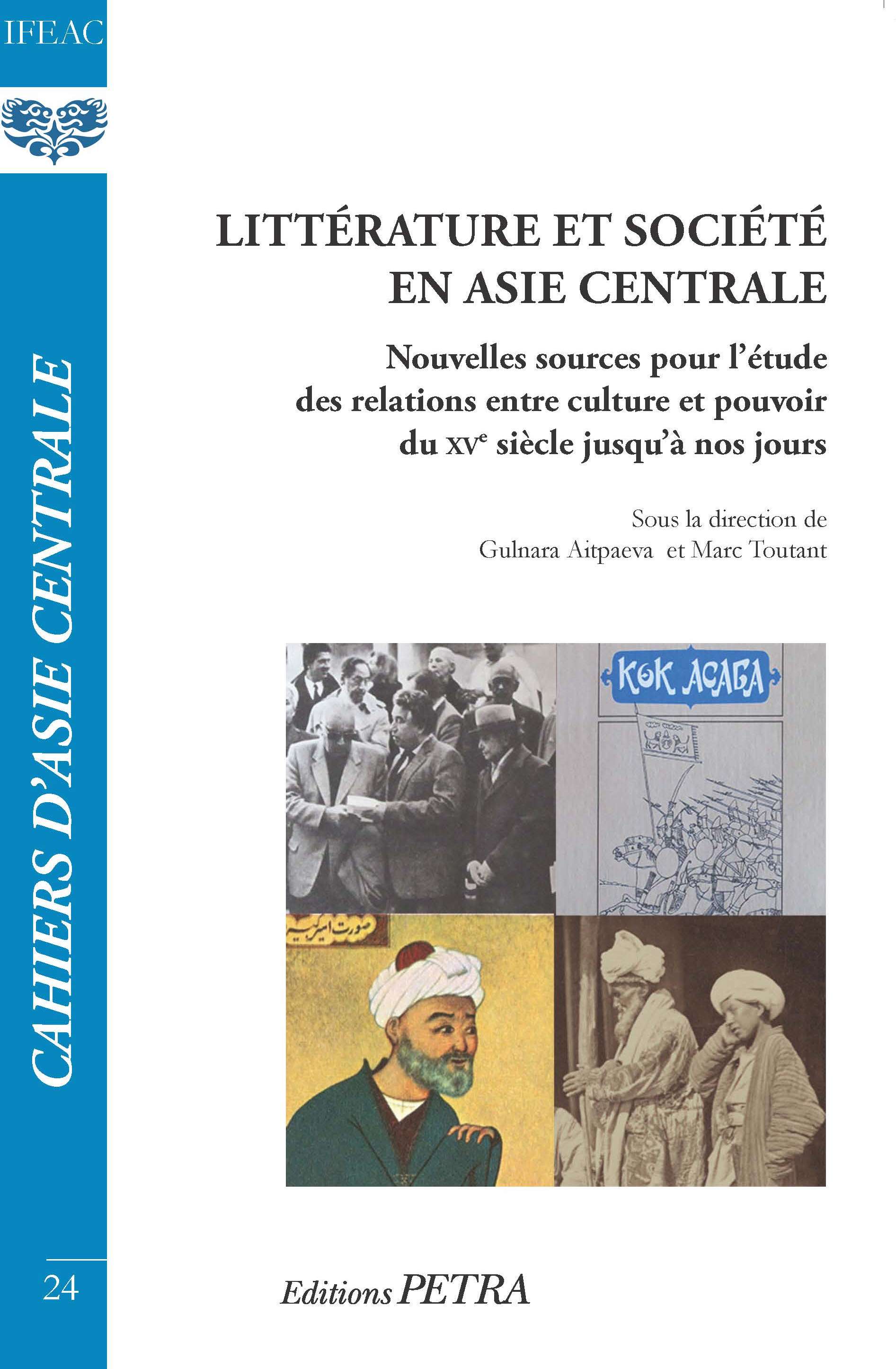-
30.00€
See below the English abstract
N° 24
La littérature de ce que l’on a convenu d’appeler « l’Asie centrale » a été composée dans une grande variété de langages sur un vaste territoire qui inclut non seulement les cinq républiques de l’ex-Union soviétique (Turkménistan, Ouzbékistan, Kazakhstan, Kirghizstan, Tadjikistan), mais aussi l’Azerbaïdjan, l’Afghanistan, la Mongolie, le Tibet, le Népal, le Bhoutan, ainsi que certaines régions de la Russie et de la Chine (la région autonome ouïgoure du Xinjiang pour ne citer qu’elle). Inutile de dire que les oeuvres produites dans ce vaste ensemble forment une somme considérable de matériaux, à la fois écrits et oraux, qui auraient peut-être requis davantage d’attention que celle que l’on leur a accordée jusqu’ici, au moins dans les recherches réalisées en Occident. Compte tenu du déficit de publications dans ce domaine, le fait que les Cahiers d’Asie centrale consacrent un numéro à ce sujet mérite toute notre attention.
Mais ce volume est certainement plus qu’une contribution à l’étude de la littérature centrasiatique. En se concentrant sur les défis sociétaux tels qu’ils se reflètent dans la production littéraire, cet ouvrage aimerait bien entendu apporter des réponses, mais aussi des nouvelles formes de questionnements sur la façon dont les différentes sociétés et les populations de cette aire ont représenté leur propre cheminement historique. Avec la perspective d’étudier comment la littérature pouvait être utilisée telle une véritable source historiographique, et plus généralement avec l’intention d’évaluer le niveau d’intrication de la littérature avec la société qui la produit, les différents contributeurs ont consacré une attention particulière au problème des relations établies entre culture et pouvoir. A cet égard, la période historique ici considérée s’étend du xve siècle jusqu’à nos jours. Elle commence avec la fin de l’époque médiévale, lorsque la Renaissance Timouride offre ses plus belles heures, et s’achève avec la situation de la littérature kirghize contemporaine, incluant dans l’intervalle l’époque pré-moderne envisagée du point de vue des écrits mystiques d’un poète du Turkestan oriental, ainsi que la période de la colonisation russe et l’ère soviétique qui lui succède directement.
The literature of what has been labelled ‘Central Asia’ has been produced in a variety of languages and across a huge area, which includes not only the five republics of the former Soviet Union (Turkmenistan, Uzbekistan, Kazakhstan, Kyrgyzstan, Tajikistan), but also Azerbaijan, Afghanistan, Mongolia, Tibet, Nepal, Bhutan, and parts of Russia and China (the Uyghur Autonomous Region). Needless to say the literary works produced in this vast space represent a considerable amount of material, both oral and written, which would maybe require more attention than they are actually given thus far, at least in the Western academic world. Given the scarcity of publications in the field, the fact that the Cahiers d’Asie centrale is devoting a single issue to this matter is something that deserves due attention.
But this issue is certainly more than a contribution to the study of Central Asian literature. Indeed, by aiming to focus on the societal challenges reflected by Central Asian literary production, this volume would like to bring answers, as well as new kinds of question regarding the way the various societies and peoples of this geographic area have depicted their own historical trajectories. Within the perspective of examining the way literature can be used as a source of historiography, and more generally speaking with the aim of assessing the interconnectedness of society and literature, the various contributors have devoted a specific attention to the issue of the relationships between culture and power. In this regard the historical timeline that is encompassed extends from the fifteenth century up to the present day. It begins with the end of the medieval times, when the Timurid Renaissance achieved the production of its finest hours, and ends with the situation of contemporary Kyrgyz literature, including in the period between the early modern times looked at from the viewpoint of the mystical writings of an Eastern Turkestanese poet, as well as the Russian colonisation and the Soviet era.
Sommaire
Transcriptions, translittération et autres conventions
Introduction
Gulnara Aitpaeva & Marc Toutant
Première partie – La fin de l’époque médiévale : l’ère des derniers Timourides
From Herat to Shiraz: the Unique Manuscript (876/1471) of ‘Alī Shīr Nawā’ī’s Poetry from Aq Qoyunlu Circle
Aftandil Erkinov
La réponse du poète chaghatay Nawā’ī au poète persanNiẓāmī : le sultan timouride, « refuge de la charia »
Marc Toutant
Un cas de « vérisme » littéraire timouride : le conte du mercredi dans les Haft Manẓar de ‘Abd Allāh Hātifī
Michele Bernardini
Deuxième partie – Le début des Temps modernes : une époque d’incertitudes
Kharābātā (1638-1730), un poète populaire du Turkestan oriental
Alexandre Papas
Troisième partie – La colonisation russe : un dialogue contraint
Le contrôle impérial des répertoires poétiques. La mise au pas des prédicateurs maddāḥ dans le Gouvernorat général du Turkestan (fin XIXe-début XXe siècle)
Aftandil Erkinov
Quatrième partie – La période soviétique : disjonction et développement
Educating the Poets and Fostering Uzbek Poetry of the 1910s to Early 1930s
Ingeborg Baldauf
Performing as Soviet Central Asia’s Source Texts: Lahuti and Džambul in Moscow, 1935-1936
Katharine Holt
Romance, Passion Play, OptimisticTragedy: Soviet National Theatre and the Reforging of Farhad
Samuel Hodgkin
Criticism as War: The Ideological Battlefield of Uzbek Literary Studies from the 1950s to the 1990s
Zulkhumor Mirzaeva
Cinquième partie – De la perestroïka aux indépendances : nouvelles trajectoires et nouveaux enjeux littéraires au Kirghizstan
Kyrgyz Prose During Perestroika: Anticipating or Constructing the Future?
Gulnara Aitpaeva
La littérature du Kirghizstan confrontée aux nouvelles conditions géopolitiques et historico-culturelles : le discours russe
Bakhtiar Koi?uev
La littérature comme mise en archive d’une identité : l’expérience des auteurs russes du Kirghizstan postsoviétique
Èleonora Proâeva
